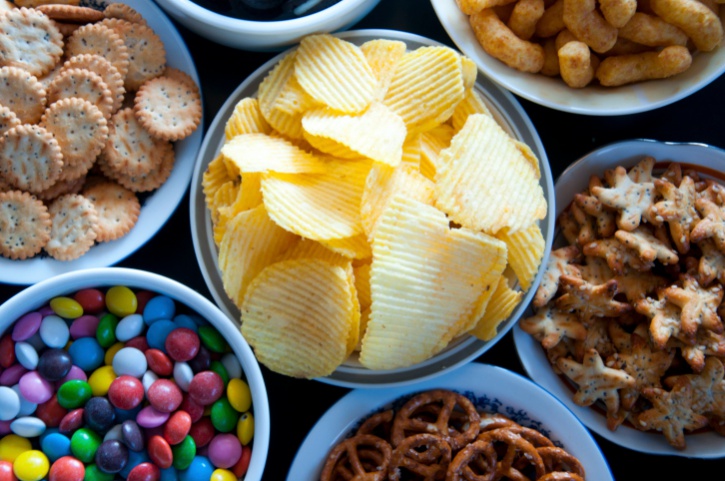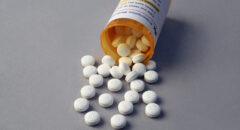 You’ve told yourself that you’re not going to eat anymore sugar this week. You threw away all of the Nutter Butters in your desk at work, opted not to put sugar in your morning oatmeal and you swore off on soda for at least a week.There’s one problem: high fructose corn syrup won’t let you be great. High fructose corn syrup is in everything, including many of your favorite healthy snacks. Items like breakfast cereal, yogurt, nutrition bars and even salad dressings contain high fructose corn syrup. High fructose corn syrup is a special kind of sugar that has been proven to increase glycemic index levels, contains calories that contributes little to no nutritional value and increases the risk of diabetes. Dr. Garth Graham, president of the Aetna Foundation and former deputy assistant secretary in the U.S. Department of Health and Human Services, informs us about the dangers of high fructose corn syrup and ways you can avoid this popular sugar.
You’ve told yourself that you’re not going to eat anymore sugar this week. You threw away all of the Nutter Butters in your desk at work, opted not to put sugar in your morning oatmeal and you swore off on soda for at least a week.There’s one problem: high fructose corn syrup won’t let you be great. High fructose corn syrup is in everything, including many of your favorite healthy snacks. Items like breakfast cereal, yogurt, nutrition bars and even salad dressings contain high fructose corn syrup. High fructose corn syrup is a special kind of sugar that has been proven to increase glycemic index levels, contains calories that contributes little to no nutritional value and increases the risk of diabetes. Dr. Garth Graham, president of the Aetna Foundation and former deputy assistant secretary in the U.S. Department of Health and Human Services, informs us about the dangers of high fructose corn syrup and ways you can avoid this popular sugar.
BlackDoctor.org: Why is sugar so addictive? What biologically happens to the body when people crave sugar?
Dr. Graham: Simple sugar glucose is absorbed from the intestines into the bloodstream and then distributed to all the cells in our body when we consume food. While glucose in moderate levels is important to brain function and acts a major fuel source for the body’s nervous system, we are seeing higher and higher levels of sugar consumption in children and adults which is having serious negative health impacts. There is evidence that sugar stimulates the same pleasure centers in the brain as opioids and dopamine and might have the potential to be addictive. Studies have also shown that for humans and animals who show signs of being addicted to sugar, they also experience symptoms of withdraw once sugar is removed from their diet.
BlackDoctor.org: High fructose corn syrup seems be a popular ingredient in a lot of foods. How is it different from sugar?
Dr. Graham: There are six different kinds of sugar:
- Glucose: Simple sugar that can be carried in the blood; can be found in honey, fruits and vegetables.
- Fructose: Simple sugar that occurs naturally in fruit and honey.
- Sucrose: Commonly known as table sugar, it occurs naturally in sugar and found in plants.
- Lactose: Milk sugar, which makes up less than 5% of cow’s milk.
- Maltose: Two joined-up glucose molecules, found in barley.
- High fructose corn syrup: Corn syrup where half of the glucose has been converted into fructose, and is chemically very similar to sucrose.
The fructose in high fructose corn syrup is processed differently by the body than sucrose, which has an effect on how the metabolic-regulating hormones function and can cause the liver to release more fat into the bloodstream. While glucose is able to tell the body that it’s satisfied, fructose does not trigger that same sense of fullness and can lead over overeating, obesity and diabetes.
High fructose corn syrup is in a surprising amount of everyday foods including juice drinks, soda, cereal, yogurt, salad dressing and nutrition bars.
BlackDoctor.org: What are communities doing to combat the effects of high fructose corn syrup?
Dr. Graham: Local communities are doing their part to stop or slow the spread of obesity-related illness by taking a stand against products with high levels of high fructose corn syrup – specifically soda. As a “HealthyCommunity50” [participant] in the Aetna Foundation’s Healthiest Cities & Counties Challenge, the South Bronx, an area in which rates of obesity and obesity-related chronic illnesses are among the highest in New York state, has formed the “Healthy Beverage Zone.” The project will affect the current policies, systems and environment of worksites (e.g., health care and educational services) throughout the South Bronx to improve healthy beverage intake.
BlackDoctor.org: What other food items can you eat in place of foods with high fructose corn syrup?
Dr. Graham: Since high fructose corn syrup is found in processed food, the first step would be to increase consumption of fresh fruits and vegetables. Fresh fruits and vegetables still provide you sugar, but in a much healthier way. Cut out, or reduce, soda from your diet and substitute with water or sparkling water. Fast food items contain a tremendous amount of high fructose corn syrup. To resist the urge to pull up to a drive-thru window, keep healthy snacks in the car like nuts or trail mix.








